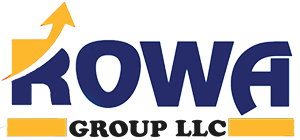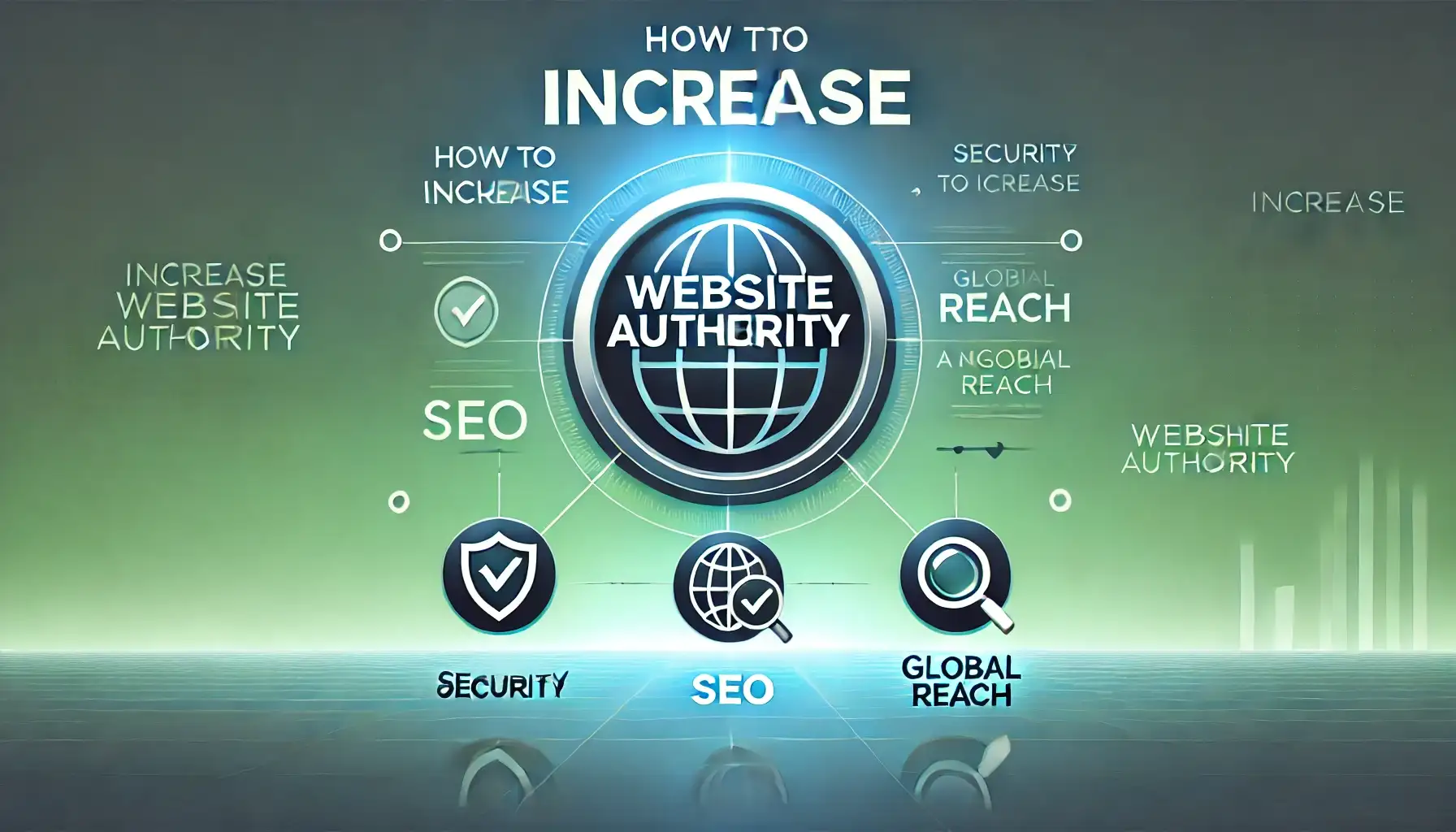how to increase domain authority fast
Domain Authority (DA) is a critical metric for anyone looking to improve their website’s visibility and ranking on search engines. Developed by Moz, Domain Authority is a score that predicts how well a website will rank on search engine result pages (SERPs). This score ranges from 1 to 100, with higher scores indicating a greater ability to rank.
Improving your Domain Authority can significantly impact your SEO efforts, leading to better rankings, more traffic, and ultimately, greater online visibility. However, increasing Domain Authority can be a challenging task, especially if you want to do it quickly. This comprehensive guide will walk you through the steps to increase Domain Authority fast, providing actionable strategies and tips to boost your website’s performance in record time.

What is Domain Authority (DA)?
What is Domain Authority and How is it Measured?
Domain Authority is a metric developed by Moz that predicts how likely a website is to rank on search engine result pages (SERPs). The DA score ranges from 1 to 100, with higher scores indicating a higher likelihood of ranking. Websites with a higher DA tend to rank better, attract more traffic, and have a more significant online presence.
The score is calculated using a variety of factors, including the number of linking root domains, the quality of backlinks, and other elements of a website’s overall SEO health. It’s important to note that DA is a comparative metric, meaning it is best used to compare your website’s performance against that of your competitors, rather than as an absolute measure of SEO success.
Why Domain Authority Matters:
- Influences Search Rankings: Websites with higher DA scores generally rank better on SERPs.
- Attracts More Traffic: A higher DA score can lead to increased organic traffic.
- Builds Online Credibility: A high DA score enhances your site’s credibility and authority in your niche.
How Does Domain Authority Impact SEO?
Domain Authority is one of the many factors that search engines consider when ranking websites. Although it is not a direct ranking factor used by Google, it is highly correlated with a website’s ability to rank. The higher your DA, the more likely you are to rank for competitive keywords, which can drive significant traffic to your site.
Key Impacts of Domain Authority on SEO:
- Increased Crawl Frequency: Websites with higher DA are crawled more frequently by search engines, leading to faster indexing of new content.
- Better Link Equity: High DA websites pass more link equity to the pages they link to, which can boost the rankings of those pages.
- Enhanced SERP Presence: A strong DA can help your website appear in more search results, improving your overall SERP presence.
Table: Comparison of Domain Authority Scores and Their Impact
| DA Score Range | Impact on SEO | Typical Sites |
|---|---|---|
| 1-20 | Low ranking potential | New or poorly optimized sites |
| 21-40 | Moderate ranking potential | Small to medium-sized businesses |
| 41-60 | Good ranking potential | Established businesses |
| 61-80 | Strong ranking potential | High-authority sites |
| 81-100 | Excellent ranking potential | Major brands and top-tier sites |
How is Domain Authority Calculated?
Domain Authority is calculated using a machine learning algorithm that evaluates several factors. These include the number and quality of inbound links to a website, the linking root domains, and the overall structure and quality of the site’s content. Moz’s algorithm then scores the website on a 100-point logarithmic scale.
Factors Affecting Domain Authority:
- Linking Root Domains: The number of unique domains linking to your site.
- Quality of Backlinks: The authority and relevance of the sites linking to you.
- Site Structure: The organization of your website, including internal linking and URL structure.
- Content Quality: The relevance, uniqueness, and depth of your content.

Key Factors that Influence Domain Authority
To increase your Domain Authority fast, it’s crucial to understand the key factors that influence this metric. These factors are the building blocks of a strong DA score and should be the primary focus of your SEO strategy.
Backlink Quality
High-Quality Backlinks:
Backlinks are one of the most significant factors influencing Domain Authority. However, not all backlinks are created equal. The quality of the backlinks pointing to your website plays a more critical role than the quantity. High-quality backlinks come from reputable, authoritative websites within your industry or niche. These links signal to search engines that your content is valuable and trustworthy, which can significantly boost your DA score.
Characteristics of High-Quality Backlinks:
- Relevance: Links from websites related to your niche or industry.
- Authority: Links from websites with high Domain Authority scores.
- Editorially Placed: Links that are naturally placed within content rather than spammy or paid links.
How to Earn High-Quality Backlinks:
- Guest Blogging: Write valuable, informative guest posts for high-authority blogs in your industry.
- Create Link-Worthy Content: Develop content that others want to link to, such as comprehensive guides, case studies, and original research.
- Outreach: Reach out to industry influencers, bloggers, and websites with your high-quality content, requesting a backlink.
Impact of Backlink Quality on DA: The more high-quality backlinks you have, the higher your Domain Authority is likely to be. However, low-quality backlinks from spammy or irrelevant sites can have the opposite effect, potentially harming your DA score.
Internal Linking Structure
Effective Internal Linking:
Internal links are links from one page on your website to another. A well-structured internal linking strategy can significantly impact your Domain Authority by helping search engines understand the structure and hierarchy of your site. Internal links also improve user experience by making it easier for visitors to navigate your website and find relevant content.
Best Practices for Internal Linking:
- Use Descriptive Anchor Text: Ensure that the anchor text (the clickable text) is descriptive and relevant to the content it’s linking to.
- Link to Important Pages: Prioritize linking to pages that you want to rank higher, such as cornerstone content or high-converting pages.
- Maintain a Logical Structure: Organize your internal links in a way that makes sense and supports the user journey.
Benefits of Strong Internal Linking:
- Improved Crawlability: Helps search engines crawl and index your site more efficiently.
- Increased Page Authority: Distributes page authority (link juice) across your website.
- Enhanced User Experience: Guides users to related content, keeping them on your site longer.
Site Structure and User Experience
Importance of a Well-Structured Site:
The structure of your website and the user experience it provides are crucial for improving Domain Authority. A well-structured site is easy to navigate, loads quickly, and is mobile-friendly. Search engines favor websites that offer a positive user experience, as they are more likely to engage visitors and keep them on the site longer.
Key Elements of a Good Site Structure:
- Clean URL Structure: Use short, descriptive URLs that include target keywords and accurately describe the page’s content.
- Mobile-Friendliness: Ensure your site is fully responsive and works well on all devices.
- Fast Loading Times: Optimize images, use a content delivery network (CDN), and leverage browser caching to improve site speed.
- Logical Navigation: Organize your site’s navigation so that users can easily find what they’re looking for without getting lost.
Impact on Domain Authority: A well-structured site with a good user experience encourages visitors to stay longer, reduces bounce rates, and increases the likelihood of earning high-quality backlinks. These factors collectively contribute to a higher Domain Authority score.
Content Quality and Relevance
Creating High-Quality Content:
Content is king in the world of SEO, and the quality and relevance of your content have a direct impact on your Domain Authority. High-quality content is informative, engaging, and tailored to your target audience’s needs. It answers questions, solves problems, and provides value, making it more likely to attract backlinks and social shares.
Elements of High-Quality Content:
- Depth and Detail: Comprehensive content that covers a topic thoroughly.
- Originality: Unique content that offers a fresh perspective or new information.
- Relevance: Content that aligns with the interests and needs of your target audience.
- SEO Optimization: Content that is optimized with relevant keywords, headings, and meta descriptions.
How to Maintain Content Quality:
- Regular Updates: Keep your content up-to-date to ensure it remains relevant.
- Focus on User Intent: Understand what your audience is searching for and create content that meets their needs.
- Incorporate Visuals: Use images, infographics, and videos to enhance your content and make it more engaging.
Impact on Domain Authority: High-quality, relevant content is more likely to be shared, linked to, and ranked well in search engines. This leads to an increase in Domain Authority as your site becomes recognized as a valuable resource in your industry.

Proven Strategies to Increase Domain Authority Fast
If you’re looking to increase your Domain Authority quickly, it’s essential to implement strategies that have been proven to work. Below are several effective methods that can help you boost your DA score in a relatively short period.
Build High-Quality Backlinks
Why Backlinks Matter:
Backlinks are one of the most influential factors in determining Domain Authority. The more high-quality, relevant backlinks you have, the higher your DA is likely to be. Backlinks act as “votes of confidence” from other websites, signaling to search engines that your site is trustworthy and authoritative.
Strategies for Building High-Quality Backlinks:
- Guest Posting: Write guest posts for reputable websites in your industry. Include a link back to your site within the content or author bio.
- Skyscraper Technique: Identify popular content in your niche, create an even better version, and reach out to websites that linked to the original content to request a link to your improved version.
- Influencer Outreach: Connect with influencers in your industry and ask them to share your content or link to it from their sites.
- Broken Link Building: Find broken links on other websites in your niche, create content that matches the broken link, and ask the site owner to replace the broken link with yours.
Focus on Internal Linking
Why Internal Linking is Important:
Internal linking helps search engines understand the structure of your website and the relationship between different pages. It also distributes link equity across your site, helping to boost the DA of individual pages.
Effective Internal Linking Practices:
- Use Relevant Anchor Text: Ensure that the anchor text used in your internal links is descriptive and relevant to the content it’s linking to.
- Link to High-Value Pages: Prioritize linking to pages that are important for your SEO strategy, such as cornerstone content or pages targeting high-volume keywords.
- Create a Logical Link Structure: Organize your internal links in a way that supports the user’s journey through your site and helps search engines crawl your content more effectively.
Create High-Quality, SEO-Optimized Content
The Role of Content in Domain Authority:
Content quality is a critical factor in both attracting backlinks and keeping visitors engaged on your site. SEO-optimized content that addresses the needs and interests of your target audience is more likely to rank well in search engines, earn backlinks, and improve user experience—all of which contribute to higher Domain Authority.
Tips for Creating High-Quality Content:
- Conduct Thorough Keyword Research: Use tools like Ahrefs or Semrush to identify keywords with high search volume and low competition.
- Focus on User Intent: Ensure your content answers the questions and meets the needs of your audience.
- Optimize for SEO: Include your target keywords in the title, headings, meta descriptions, and throughout the content. Use synonyms and related terms to avoid keyword stuffing.
- Incorporate Visuals: Use images, infographics, and videos to enhance your content and make it more engaging.
Improve Your Site’s Technical SEO
Why Technical SEO Matters:
Technical SEO involves optimizing the backend of your website to ensure it meets the requirements of search engines and provides a smooth user experience. Technical SEO factors like site speed, mobile-friendliness, and crawlability can significantly impact your Domain Authority.
Key Technical SEO Strategies:
- Optimize Site Speed: Use tools like Google PageSpeed Insights to identify issues that are slowing down your site. Compress images, leverage browser caching, and minimize code to improve load times.
- Ensure Mobile-Friendliness: Make sure your website is fully responsive and provides a seamless experience on all devices.
- Fix Crawl Errors: Use Google Search Console to identify and fix crawl errors that may prevent search engines from indexing your site properly.
- Implement HTTPS: Secure your site with an SSL certificate to protect user data and improve your site’s trustworthiness.
Engage in Social Media Promotion
Why Social Media is Important for DA:
While social media signals are not a direct ranking factor for search engines, they can indirectly influence your Domain Authority by driving traffic to your site and increasing the likelihood of earning backlinks. A strong social media presence can amplify your content’s reach and attract more visitors and potential linkers.
Effective Social Media Promotion Strategies:
- Share Content Regularly: Promote your blog posts and other content on social media platforms to reach a wider audience.
- Engage with Followers: Respond to comments, participate in discussions, and build relationships with your audience to increase engagement.
- Use Social Sharing Buttons: Make it easy for visitors to share your content by adding social sharing buttons to your blog posts and pages.
- Collaborate with Influencers: Partner with influencers in your industry to amplify your content’s reach and credibility.
Monitor and Clean Your Backlink Profile
Why Backlink Monitoring is Crucial:
Not all backlinks are beneficial, and some can even harm your Domain Authority. Low-quality or spammy backlinks can negatively impact your DA and search engine rankings. Regularly monitoring your backlink profile and disavowing harmful links is essential for maintaining and improving your DA score.
Steps to Monitor and Clean Your Backlink Profile:
- Use Tools Like Ahrefs or Moz: These tools can help you monitor your backlink profile and identify low-quality or spammy links.
- Disavow Harmful Links: Use Google’s Disavow Tool to tell search engines to ignore specific backlinks that may harm your site’s SEO.
- Reach Out for Link Removal: Contact the webmasters of sites with harmful links and request that they remove the link to your site.
- Regularly Audit Your Backlinks: Make backlink audits a regular part of your SEO strategy to ensure your profile remains clean and healthy.

Common Mistakes to Avoid When Trying to Increase Domain Authority
When working to increase your Domain Authority, it’s easy to fall into traps that can actually harm your efforts. Avoiding these common mistakes will help you stay on the right track and see improvements more quickly.
Focusing Solely on Quantity of Backlinks
The Mistake:
One of the most common mistakes is focusing too much on the number of backlinks rather than their quality. Some website owners mistakenly believe that acquiring as many backlinks as possible, regardless of their source, will quickly boost their Domain Authority.
Why It’s Harmful:
Low-quality or spammy backlinks from irrelevant or dubious sites can actually hurt your Domain Authority. Search engines may view these links as manipulative, leading to penalties that lower your rankings and overall DA score.
What to Do Instead:
- Prioritize Quality Over Quantity: Focus on earning backlinks from authoritative, relevant sites within your industry.
- Avoid Spammy Link Building Practices: Stay away from link farms, paid links, or other black-hat SEO tactics that could get your site penalized.
- Regularly Audit Your Backlinks: Use tools like Ahrefs or Moz to monitor your backlink profile and disavow any harmful links.
Neglecting Content Quality and Relevance
The Mistake:
Some site owners focus heavily on technical SEO and backlinks while neglecting the quality and relevance of their content. This approach can lead to poor user engagement, high bounce rates, and ultimately, a lower Domain Authority.
Why It’s Harmful:
Content is the cornerstone of SEO, and without high-quality, relevant content, it’s difficult to attract and retain visitors or earn backlinks. Poor content can also result in negative user experiences, driving visitors away and reducing your site’s credibility.
What to Do Instead:
- Create Value-Driven Content: Focus on producing content that addresses the needs, interests, and pain points of your target audience.
- Update Content Regularly: Keep your content fresh and relevant by updating it periodically with new information, insights, or data.
- Use a Content Calendar: Plan and schedule your content to ensure consistent publishing and relevance to current trends and topics.
Ignoring User Experience (UX) and Technical SEO
The Mistake:
Overlooking user experience and technical SEO is another common error. Some website owners are so focused on content and backlinks that they forget about the importance of a fast, mobile-friendly, and easy-to-navigate website.
Why It’s Harmful:
A poor user experience can drive visitors away, increase bounce rates, and negatively impact your site’s Domain Authority. Technical issues like slow page loading times, broken links, and poor mobile optimization can also hurt your search engine rankings and user satisfaction.
What to Do Instead:
- Optimize Site Speed: Ensure your website loads quickly by compressing images, minifying CSS and JavaScript, and using a content delivery network (CDN).
- Ensure Mobile Friendliness: Use responsive design to make sure your site performs well on all devices.
- Improve Navigation: Simplify your site’s navigation to make it easy for users to find what they’re looking for.
- Fix Technical Issues Promptly: Regularly check for and fix any technical issues such as broken links, crawl errors, or duplicate content.
Over-Optimizing for Keywords
The Mistake:
While it’s important to optimize your content for keywords, over-optimizing—also known as keyword stuffing—can do more harm than good. Over-optimization occurs when you forcefully insert keywords into your content in an unnatural way.
Why It’s Harmful:
Keyword stuffing can lead to a poor reading experience for users and may be penalized by search engines. This practice can make your content appear spammy and reduce its overall quality and relevance.
What to Do Instead:
- Use Keywords Naturally: Incorporate your target keywords and variations naturally within your content. Focus on creating content that reads well and provides value.
- Leverage Semantic Keywords: Use related terms and synonyms to add context and depth to your content without overusing your primary keywords.
- Focus on User Intent: Prioritize creating content that meets the needs and expectations of your audience over trying to hit a specific keyword density.
Not Monitoring and Adjusting Your SEO Strategy
The Mistake:
SEO is not a set-it-and-forget-it process. Failing to monitor your SEO performance and adjust your strategy based on data and trends can prevent you from improving your Domain Authority.
Why It’s Harmful:
SEO is dynamic, and search engine algorithms change frequently. Without regular monitoring and adjustments, your strategies may become outdated, and your Domain Authority could stagnate or decline.
What to Do Instead:
- Use SEO Tools: Utilize tools like Google Analytics, Google Search Console, Ahrefs, or Moz to track your SEO performance and identify areas for improvement.
- Regularly Review Your Strategy: Periodically assess your SEO strategy to ensure it aligns with the latest best practices and search engine guidelines.
- Stay Updated: Keep up with the latest SEO trends and algorithm updates to adapt your strategy as needed.

Case Studies: Successful Domain Authority Growth
Examining real-world examples of websites that have successfully increased their Domain Authority can provide valuable insights into effective strategies. Below are a few case studies that illustrate different approaches to boosting DA quickly.
Case Study 1: E-commerce Website Boosts DA from 20 to 40 in 6 Months
Background:
An e-commerce website in the fashion industry was struggling with low Domain Authority (DA 20) and limited organic traffic. The site had good products and a user-friendly design, but it lacked authority and visibility in search engines.
Strategies Implemented:
- Content Marketing: The website launched a blog focused on fashion tips, styling advice, and industry news. They produced high-quality, SEO-optimized content targeting long-tail keywords.
- Guest Posting: The company collaborated with fashion bloggers and influencers to write guest posts that included backlinks to their site. This helped build high-quality backlinks from reputable sources.
- Internal Linking: The site was reorganized to include a more strategic internal linking structure, improving the distribution of link equity across important pages.
- Social Media Engagement: The brand leveraged social media platforms to promote blog content and engage with followers, driving more traffic and increasing the chances of earning backlinks.
Results:
After six months, the website’s Domain Authority increased from 20 to 40. Organic traffic grew by 150%, and the site began ranking on the first page of Google for several competitive keywords.
Key Takeaways:
- Content Quality Matters: Regularly publishing high-quality, targeted content can attract both users and backlinks, leading to higher DA.
- Collaborate for Backlinks: Guest posting and influencer collaborations are effective for building high-quality backlinks.
- Leverage Social Media: Promoting content on social media can increase visibility and drive traffic, which indirectly boosts DA.
Case Study 2: Niche Blog Achieves DA 50 with Strategic Link Building
Background:
A niche blog focused on healthy living and wellness started with a DA of 15. The blog’s content was well-written, but it lacked visibility and authority in search engines, resulting in limited organic traffic.
Strategies Implemented:
- Targeted Link Building: The blog owner used the Skyscraper Technique to create comprehensive, in-depth content that was better than what competitors offered. They then reached out to sites that linked to the original content, requesting backlinks.
- Resource Page Outreach: The blog owner identified resource pages on other websites related to wellness and reached out to have their content included.
- Fixing Broken Links: They conducted a broken link building campaign, identifying broken links on relevant websites and offering their content as a replacement.
- Engaging Content Formats: The blog introduced various content formats, such as infographics and how-to guides, which were more likely to be shared and linked to.
Results:
Within a year, the blog’s Domain Authority increased from 15 to 50. The blog also saw a 200% increase in referral traffic and a significant rise in organic search rankings.
Key Takeaways:
- In-Depth Content Attracts Links: Creating comprehensive content that adds more value than competitors’ can earn high-quality backlinks.
- Broken Link Building Works: Replacing broken links on other sites with your own content is an effective link-building strategy.
- Diverse Content Formats: Using various content formats can increase shareability and linkability, contributing to higher DA.
Case Study 3: SaaS Company Raises DA from 30 to 60 Using Data-Driven SEO
Background:
A Software as a Service (SaaS) company with a DA of 30 aimed to increase its online visibility and authority to attract more organic leads. The company had a solid product but faced stiff competition in the search engine rankings.
Strategies Implemented:
- Data-Driven Content Creation: The company conducted thorough keyword research to identify content gaps in their industry. They created data-driven content, such as original research, case studies, and white papers, to fill these gaps.
- Strategic Backlink Acquisition: The company targeted high-authority sites within their industry for backlinks, using a combination of guest posts, expert roundups, and collaborations.
- Technical SEO Enhancements: They optimized their website’s technical SEO, improving site speed, fixing crawl errors, and ensuring mobile-friendliness.
- Building Relationships with Influencers: The company formed relationships with industry influencers, who helped promote their content and link back to their site.
Results:
Over 12 months, the SaaS company’s Domain Authority increased from 30 to 60. The site saw a 300% increase in organic traffic, and lead generation from organic search improved by 250%.
Key Takeaways:
- Leverage Data: Using data to create original, valuable content can set your site apart and attract high-quality backlinks.
- Target High-Authority Sites: Earning backlinks from sites with high DA can significantly impact your own Domain Authority.
- Technical SEO is Crucial: Ensuring your site’s technical health can support all other SEO efforts, leading to better rankings and higher DA.
Conclusion
Increasing your Domain Authority (DA) is a vital aspect of improving your website’s visibility, credibility, and overall success in search engine rankings. While it’s not an overnight process, with the right strategies and a focused effort, you can see significant improvements in your DA over time. Here’s a recap of the key strategies covered in this guide:
Key Strategies for Fast Domain Authority Growth
- High-Quality Content Creation:
- Focus on creating in-depth, valuable content that addresses the needs and interests of your target audience.
- Regularly update your content to keep it relevant and fresh.
- Utilize a variety of content formats, including blog posts, infographics, videos, and case studies.
- Strategic Link Building:
- Earn high-quality backlinks from reputable and relevant websites within your industry.
- Use tactics such as guest posting, the Skyscraper Technique, broken link building, and resource page outreach.
- Avoid spammy, low-quality link-building practices that could harm your DA.
- Technical SEO Optimization:
- Improve site speed, ensure mobile-friendliness, and fix any crawl errors or broken links.
- Optimize your website’s structure and navigation to enhance user experience and search engine crawlability.
- User Experience (UX) Enhancements:
- Ensure your website is easy to navigate, visually appealing, and responsive across all devices.
- Improve page load times and reduce bounce rates by optimizing images and using a Content Delivery Network (CDN).
- Consistent Monitoring and Adaptation:
- Regularly monitor your SEO performance and adjust your strategy based on data and trends.
- Use tools like Google Analytics, Ahrefs, and Moz to track your progress and identify areas for improvement.
Conclusion: Accelerating Your Domain Authority Growth
Increasing your Domain Authority (DA) is a vital aspect of improving your website’s visibility, credibility, and overall success in search engine rankings. While it’s not an overnight process, with the right strategies and a focused effort, you can see significant improvements in your DA over time. Here’s a recap of the key strategies covered in this guide:
Key Strategies for Fast Domain Authority Growth
- High-Quality Content Creation:
- Focus on creating in-depth, valuable content that addresses the needs and interests of your target audience.
- Regularly update your content to keep it relevant and fresh.
- Utilize a variety of content formats, including blog posts, infographics, videos, and case studies.
- Strategic Link Building:
- Earn high-quality backlinks from reputable and relevant websites within your industry.
- Use tactics such as guest posting, the Skyscraper Technique, broken link building, and resource page outreach.
- Avoid spammy, low-quality link-building practices that could harm your DA.
- Technical SEO Optimization:
- Improve site speed, ensure mobile-friendliness, and fix any crawl errors or broken links.
- Optimize your website’s structure and navigation to enhance user experience and search engine crawlability.
- User Experience (UX) Enhancements:
- Ensure your website is easy to navigate, visually appealing, and responsive across all devices.
- Improve page load times and reduce bounce rates by optimizing images and using a Content Delivery Network (CDN).
- Consistent Monitoring and Adaptation:
- Regularly monitor your SEO performance and adjust your strategy based on data and trends.
- Use tools like Google Analytics, Ahrefs, and Moz to track your progress and identify areas for improvement.
Final Thoughts
While increasing your Domain Authority can be challenging, it’s an achievable goal with the right approach. By focusing on creating high-quality content, building strategic backlinks, optimizing technical SEO, and providing an excellent user experience, you can accelerate your Domain Authority growth. Remember, SEO is a long-term game, and consistency is key. Regularly review and adjust your strategies to stay ahead of the competition and maintain your website’s authority.
As you implement these strategies, be patient and persistent. Domain Authority is a metric that rewards sustained effort over time, so keep your focus on the bigger picture and the long-term success of your website. if you need to increase your domain authority fast in 14days you can contact me I’ll help you.




